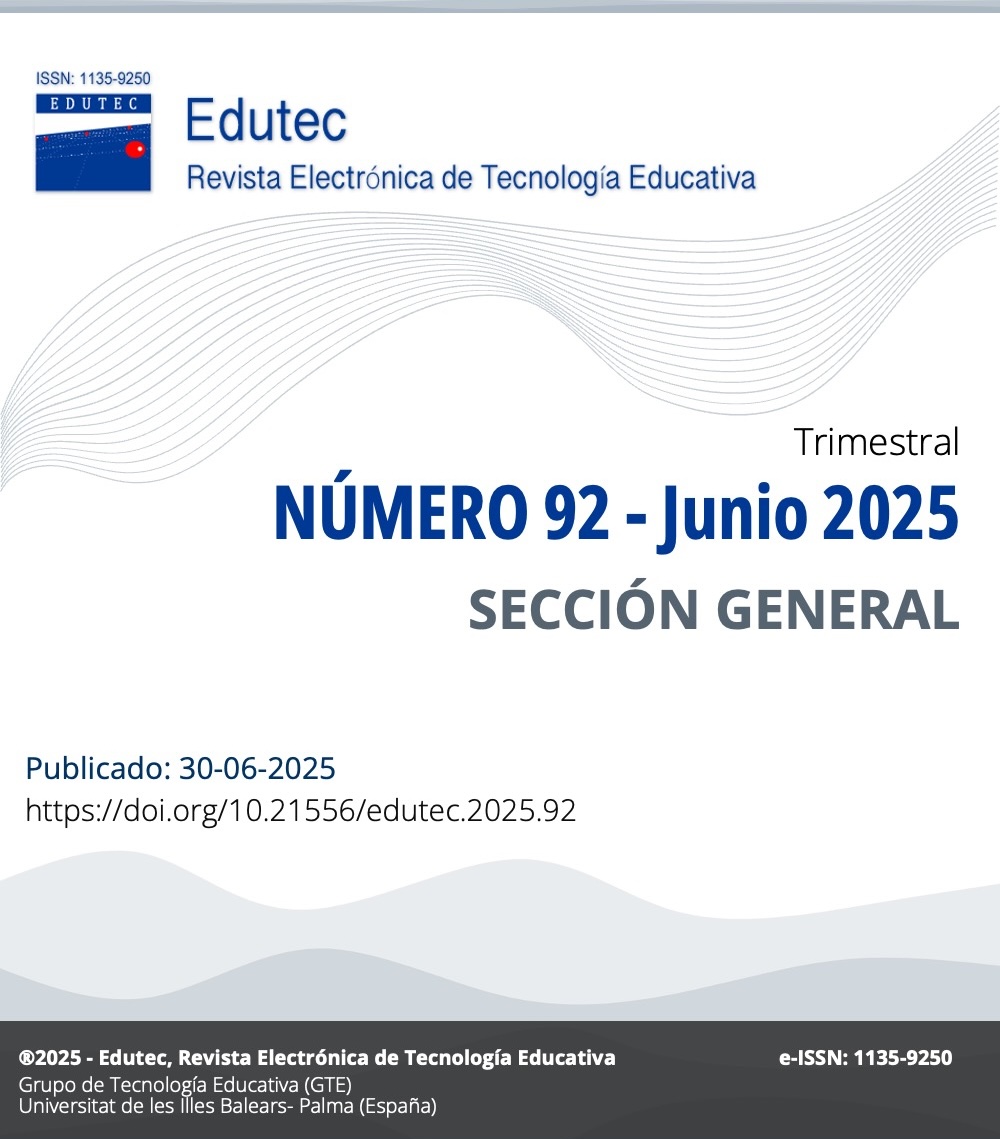A Model for Optimizing Blended Learning Success: The Roles of Learning Object, Learning Strategies, and Perception of Acceptance
DOI:
https://doi.org/10.21556/edutec.2025.92.3591Keywords:
learning object, learning strategy, learning outcome, perceptionAbstract
Learning objects, albeit small, play a significant role in conveying the learning objectives that align with learning strategies. Integrating these elements fosters positive perceptions of blended learning, which is expected to impact learning outcomes. However, there is a gap in the research on the relationship between learning objects, learning strategies, perceptions, and learning outcomes. This study aimed to develop and validate models and factors that influence the implementation of blended learning in higher education. A quantitative survey was conducted with 449 participants. The instruments used had undergone validity and reliability testing, and the data were analyzed using SEM. The results indicate that there is a model of factors influencing learning outcomes in the context of blended learning. This model includes nine dimensions of learning objects, six dimensions of learning strategies, and five dimensions of perception of acceptance, all of which significantly affect learning outcomes. The findings highlight the importance of considering the following factors in blended learning: a) learning objects, including presentation design, interaction usability, accessibility, reusability, feedback, and adaptation; b) learning strategies, such as rehearsal, elaboration, organization, critical thinking, learning time and environment, and peer learning; and c) perception of acceptance, including levels of use, attitudes, and technology adoption.
Downloads
References
-
Published
How to Cite
Issue
Section
License
Copyright (c) 2025 Edutec, Revista Electrónica de Tecnología Educativa

This work is licensed under a Creative Commons Attribution 4.0 International License.
By submitting the paper, the authors assign the publication rights to the journal Edutec. For its part, Edutec authorises its distribution as long as its content is not altered and its origin is indicated. At the end of each article published in Edutec, the citation procedure is indicated.
The management and editorial board of Edutec Revista Electrónica de Tecnología Educativa do not accept any responsibility for the statements and ideas expressed by the authors in their work.
Translated with www.DeepL.com/Translator (free version)









